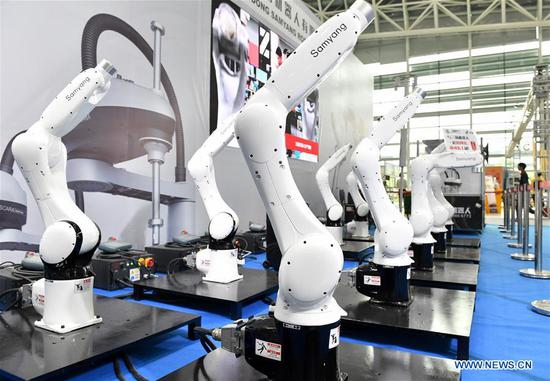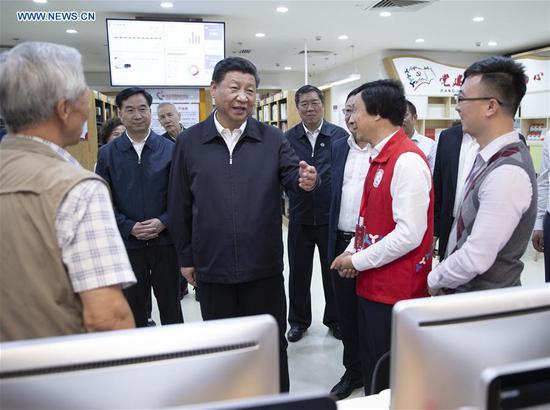Chen Bo, who owns a packaging company, says he is expecting an increase of 10 million yuan (1.4 million U.S. dollars) in his company's sales this year, thanks to expansion of production capacity.
The expansion would not be possible if not for a 500,000 yuan loan from a local bank, using his company's trademark right as collateral, Chen said. With the loan, Chen said he can buy new equipment and expand production.
Chen's company, located in the city of Taizhou, east China's Zhejiang Province, registered an output value of 30 million yuan last year.
Zhejiang is home to many of China's most successful private businesses. They contributed nearly two-thirds of the provincial economy in 2017.
Nationwide, private businesses contribute more than 50 percent of tax revenue, 60 percent of GDP, 70 percent of technological innovation, 80 percent of urban employment and 90 percent of new jobs and new firms.
However, financing for these firms, especially small and micro-businesses has been difficult, often due to lack of credit records, collateral or professional financial statements.
In a move to boost the private sector, the government on Monday decided to facilitate bond issuance for private companies, with liquidity support from the central bank to professional institutions.
The central bank announced that it will increase the quotas of relending and rediscount to financial institutions by 150 billion yuan (about 21.6 billion U.S. dollars) to ensure targeted loans can be channeled to private firms, following an expansion of the same amount in June.
"Since this year, we have seen more financial products on the market," said Tang Jingang, head of Hangzhou Selene Photoelectric Technology Co. Ltd., a private company worth around 55 million yuan.
In the past, the company had to turn to underwriting companies for applying for bank loans, which usually charge 5 percent on the amount of loans received.
As financial support has been strengthened, companies can apply for loans directly by submitting tax records and documents reflecting the company's overall development.
"Skipping underwriting companies has helped us save hundreds of thousands of yuan," Tang said.
Statistics from Zhejiang Rural Credit Cooperative Union Bank show that it has set up financial profiles for more than a million small and micro- enterprises.
The bank has also offered a wider variety of products allowing companies to receive loans by using accounts receivable, trademark rights, patent rights and equities as collateral.
According to the operation office of the central bank, small and micro enterprises in Beijing have received 258.83 billion yuan in the first nine months this year, up by 26.7 percent, while the interest rate have dropped during the same period.
Bank regulators in China's trade hub Guangdong have also pledged to offer financial support for foreign trade companies in temporary difficulties, in a guideline laid out last week.
"A sufficient cash flow drives out worries," Tang said. "It's good both for upstream and downstream enterprises."


















































